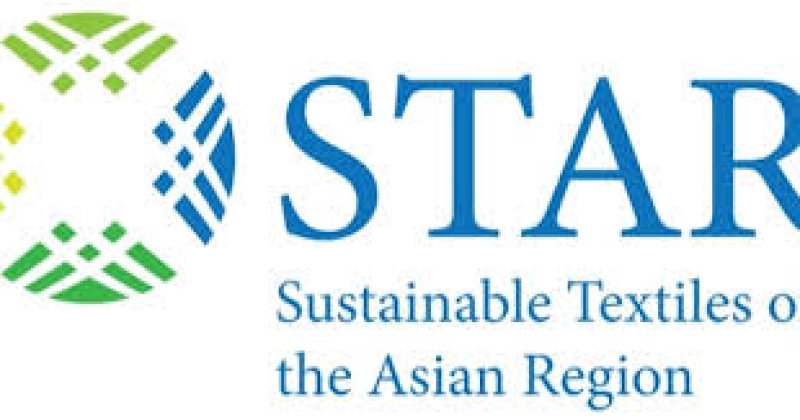- Gaza Ceasefire Not Enough as Children Continue to Die |
- Bangladesh Sets Guinness Record With 54 Flags Aloft |
- Gambia Tells UN Court Myanmar Turned Rohingya Lives Hell |
- U.S. Embassy Dhaka Welcomes Ambassador-Designate Brent T. Christensen |
- Survey Shows Tight Race Between BNP and Jamaat-e-Islami |
STAR Network Joins Fashion Climate Action Charter

The Sustainable Textiles of the Asian Region (STAR) Network, Asia’s inter-regional alliance of garment producer associations, has reaffirmed its commitment to advancing sustainability by becoming a supporting organization of the Fashion Industry Charter for Climate Action convened by UN Climate Change.
This underscored the collective ambition of STAR’s nine national member associations - representing the garment, footwear, and travel goods (GFT) industries in Bangladesh, Cambodia, China, Myanmar, Pakistan, and Vietnam - to work together towards a more sustainable and climate-resilient future for the region’s GFT sector.
The Fashion Industry Charter for Climate Action brings together leading fashion brands, retailers, suppliers, and industry stakeholders in a united effort to align with the goals of the Paris Agreement, particularly the ambition to limit global temperature rise to 1.5°C above pre-industrial levels.
The Charter sets a clear pathway for decarbonization, committing signatories and supporting organizations to concrete actions such as achieving net-zero emissions by 2050, promoting renewable energy, and advancing circular business models, said a media release on Monday.
By joining as a supporting organisation, STAR Network strengthens its role as a regional voice for producers and suppliers in Asia.
The partnership will:
• Enhance advocacy on behalf of nearly 35,000 manufacturers across its member associations, ensuring supplier
perspectives are represented in global sustainability dialogues.
• Facilitate collaboration with major global brands and peer organizations to scale best practices, innovations, and policies
that reduce emissions and environmental impact.
• Strengthen capacity building by creating opportunities for knowledge exchange, training, and technical support for
manufacturers navigating the green transition.
• Accelerate collective impact by fostering joint initiatives on renewable energy adoption, sustainable production practices, and transparent supply chains.
Fazlee Shamim Ehsan, Chairman of the STAR Network and Executive President of the Bangladesh Knitwear Manufacturers and Exporters Association (BKMEA), welcomed the partnership.
“This is a major step forward for the STAR Network. By joining the Charter, we are engaging more closely with global stakeholders to ensure the voices of Asian suppliers are heard in the global climate movement. I look forward to working with our partners to accelerate sustainable practices across the supply chain, while ensuring that the transition is inclusive, fair, and beneficial to the millions of workers and communities who depend on this industry," Ehsan said.
Sovichea Saron, Head of the STAR Secretariat, expressed his optimism and said, “I am very proud of this milestone for the STAR Network. It demonstrates our members’ readiness to align with global climate goals and strengthens our ability to push forward meaningful action in the region. I believe this partnership will allow us to amplify supplier perspectives, strengthen collaboration with brands, and build practical solutions that support both climate resilience and long-term competitiveness. We look forward to contributing to the Charter’s vision of a net-zero fashion industry.”
As a supporting organization, STAR Network said it is poised to engage in joint initiatives with the Charter, including regional renewable energy programs, supplier capacity building, and collaborative research to inform evidence-based policy.
This commitment reflects STAR’s dedication not only to the goals of the Charter and the Paris Agreement, but also to ensuring that sustainability transitions deliver shared value across the supply chain.
With its ever-expanding network of manufacturers and growing partnerships, STAR is uniquely positioned to amplify supplier voices, foster inclusive collaborations, and accelerate progress toward a more sustainable, resilient, and equitable future for the global garment industry.
The Sustainable Textiles of the Asian Region (STAR) Network, established in 2016 with the support of the GIZ FABRIC Project, is a cross-Asian alliance of garment producer associations united in a joint mission to drive forth a more sustainable future for the sector.
It brings together nine associations from Bangladesh, Cambodia, China, Myanmar, Pakistan, and Vietnam, representing over 35,000 manufacturers with a combined export value of approximately USD 420 billion, reports UNB.

